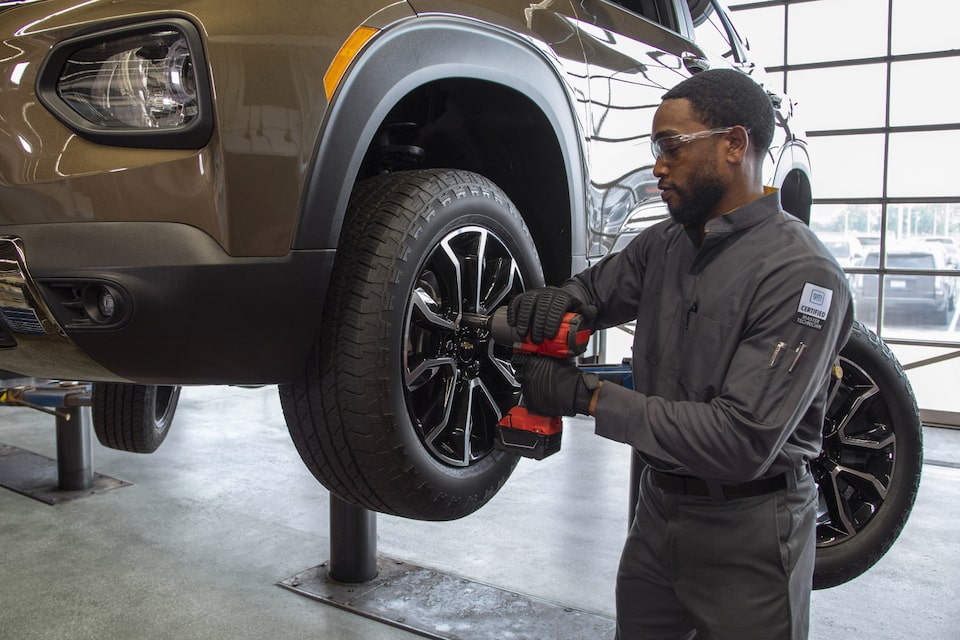Tire Service: The Influence of Weather
When it involves making certain optimum performance and safety and security when driving, recognizing the influence of weather on tire service is vital. From scorching heat to icy roads, each climate element can considerably influence tire functionality and overall driving experience. By diving into the impacts of varying weather on tires, motorists can acquire valuable insights that might improve their lorry's performance and longevity. In this conversation, we will certainly check out the elaborate connection between climate problems and tire solution, clarifying the importance of weather-specific tire maintenance methods and factors to consider.
Heat and Tire Performance
When revealed to heats, tires experience adjustments in efficiency that can considerably affect vehicle security and handling. The heat produced from long term driving or heat problems triggers the tire rubber to soften, leading to minimized step life and increased wear. As the rubber comes to be softer, the tire's grasp when driving lessens, impacting stopping distances and overall grip. In extreme situations, too much heat can even cause tire blowouts, posturing an extreme safety and security danger to the vehicle and its passengers.
Additionally, high temperature levels can speed up the process of tire aging, creating the rubber to degrade extra promptly. This can result in fractures, bulges, and various other kinds of damage that compromise the structural stability of the tire. To mitigate the impacts of warm on tire efficiency, vehicle drivers must consistently inspect their tire stress, revolve tires to guarantee even put on, and check for any type of indications of damage. Furthermore, making use of tires especially developed to hold up against heats can assist keep ideal efficiency and security when driving.
Winter Results
Winter problems can have a significant effect on tire performance and safety and security. As temperature levels decrease, tire rubber can set, bring about lowered grip on icy or snow-covered roadways. In winter, tires might likewise shed air pressure more quickly, which can affect managing and gas efficiency. In addition, chilly temperature levels can trigger tire sidewalls to stiffen, boosting the risk of damages from holes or various other road hazards.
To alleviate the impacts of winter on tires, it is important to on a regular basis check tire pressure and inflate them to the supplier's suggested levels. Utilizing winter season or all-season tires made for cool climate conditions can likewise boost grip and hold on icy or snowy roads - morris tire and alignment. Correct tire maintenance, consisting of normal examinations for wear and damages, becomes a lot more essential during cooler months to ensure ideal efficiency and security
Rainy Conditions Effect
Throughout stormy conditions, tire efficiency and safety and security can be dramatically affected by the wet roadway surfaces and reduced exposure. The tread pattern of tires plays a crucial function in preserving grip on damp roads. Tires with worn-out treads are more prone to hydroplaning, where a layer of water accumulates between the tire and the roadway surface area, bring about loss of grip. To fight this, vehicle drivers ought to consistently evaluate their tires for sufficient step depth and take into consideration buying tires specifically developed for damp conditions.

Snow and Tire Safety And Security
When driving in snowy problems, having the best tires can make a considerable difference in security and performance. Wintertime tires are developed with unique rubber substances and tread patterns to provide far better traction on snow and ice contrasted to all-season tires.
In addition to using wintertime tires, it is essential to ensure they are effectively inflated. Winter can trigger tire pressure to drop, impacting traction and handling (morris tire and alignment). On a regular basis examining and keeping the proper tire stress is essential for optimal performance in snowy problems

Weather-Related Tire Maintenance
Weather-related tire upkeep includes a range of methods aimed at guaranteeing optimum tire feature and durability in different weather condition scenarios. One key facet of weather-related tire maintenance is tire pressure law. Checking tire walk frequently and replacing tires when walk wear reaches a particular deepness is crucial for preserving grip and stability in adverse climate.
Final Thought
In conclusion, weather condition problems have a my latest blog post substantial impact on tire efficiency and safety and security (discount tires morris il). From heat impacting tire stress and wear to chilly climate reducing traction, it is necessary to take into consideration the weather condition when preserving and making use of tires.
In this discussion, we will explore the detailed relationship in between weather conditions and tire service, shedding light on the significance of weather-specific tire upkeep practices and considerations.

Comments on “Don't Miss Out on Mopar Tire Service Specials: Affordable Upkeep Plans”